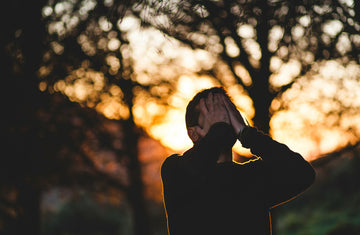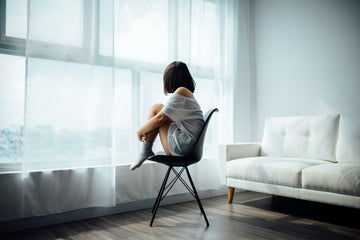Photo credit: Nathan Dumlao
Low libido is actually a common problem. Many adults feel a low or loss of sex drive, and it can happen for a myriad of reasons. Fortunately, there are plenty of ways to boost your low libido.
Low Libido Is More Common Than You Think
Low libido or loss of libido is much more common than you may think. When you experience low sex drive, it can feel like you’re the only one this is happening to. But that’s not true.
One in 5 men experience low or loss of libido at some point, and that number is even higher in women.
What Are Signs of Low Libido?
To help you know if you’re having low libido, here are some things to consider. Here are some signs and symptoms that you may be experiencing a less-than-normal sex drive:
- Fewer sexual thoughts and fantasies
- Feeling less inclined to initiate sexual activity
- Being aroused less often and to smaller extents
- A complete loss of interest in any sexual activities
- Avoiding situations that may lead to sexual encounters
- Decreased sensitivity to sexual stimuli
What Is the Cause of Low Libido?
Sex is not just physical. So many things can affect your sex drive, so let’s talk about it.
Low Libido In Women
Low libido in women can have a variety of causes, and it’s often a combination of physical, psychological, hormonal, and relational factors. Understanding the potential causes can help address and manage low libido.
Here are some of the most common causes…
Hormonal Changes
Fluctuations in hormone levels, such as those that occur during the menstrual cycle, pregnancy, breastfeeding, peri-menopause, and menopause, can affect sexual desire.
Stress and Mental Health
High levels of stress, anxiety, depression, and other mental health issues can lead to a decreased interest in sex.
Relationship Issues
Conflicts, communication problems, lack of emotional intimacy, or unresolved issues in a relationship can contribute to low libido.
Medical Conditions
Certain medical conditions, like diabetes, thyroid disorders, polycystic ovary syndrome (PCOS), chronic pain, and autoimmune disorders, can impact sexual desire.
Medications
Some medications, including antidepressants, anti-anxiety drugs, anti-hypertensives, and hormonal birth control, can have side effects that affect libido.
Lifestyle Factors
Poor sleep, lack of exercise, unhealthy diet, substance abuse, and fatigue can all contribute to low libido.
Body Image and Self-Esteem
Negative body image, low self-esteem, and a lack of confidence in one's appearance can influence sexual desire.
Trauma or Past Experiences
Past traumatic experiences, such as sexual abuse or assault, can have lasting effects on a person's sexuality and desire.
Cultural and Religious Beliefs
Societal and cultural norms, as well as religious beliefs, can play a role in shaping a woman's attitude toward sex and influence her libido.
Menopause and Aging
As women go through menopause and age, hormonal changes can lead to a decline in estrogen levels, which may affect sexual desire.
Childbirth and Postpartum
The physical and emotional changes that accompany childbirth and the postpartum period can impact sexual desire.
Lack of Sexual Education
Insufficient knowledge about sexual health, lack of communication about sexual desires, and limited sexual education can contribute to low libido.
Low Libido In Men
Low libido in men can also have a range of causes, including physical, psychological, hormonal, and lifestyle factors. Identifying and addressing these potential causes can help manage and improve low libido.
Here are the most common causes…
Hormonal Imbalances
Testosterone is a key hormone that plays a significant role in male libido. Low levels of testosterone can lead to decreased sexual desire.
Stress and Mental Health
High levels of stress, anxiety, depression, and other mental health issues can impact sexual desire and performance.
Relationship Issues
Conflicts, communication problems, emotional distance, and unresolved issues in a relationship can contribute to a loss of or low libido.
Medical Conditions
Certain medical conditions, like diabetes, obesity, cardiovascular disease, thyroid disorders, and chronic illnesses, can affect sexual desire and function.
Medications
Some medications, like antidepressants, antihypertensives, and certain prostate medications, can have side effects that affect libido.
Lifestyle Factors
Poor sleep, lack of exercise, unhealthy diet, excessive alcohol consumption, substance abuse, and smoking can all contribute to low libido.
Age-related Changes
As men age, there can be natural changes in testosterone levels and other physiological factors that impact sexual desire.
Body Image and Self-esteem
Although society doesn’t put as much pressure on men to have a certain type of body, a negative body image still affects many men. Low self-esteem and confidence issues can influence sexual desire.
Pornography Use
Excessive consumption of pornography or reliance on explicit content may desensitize individuals to real-life sexual experiences.
Performance Anxiety
Worrying about sexual performance, maintaining an erection, or satisfying a partner can lead to anxiety and a decreased desire for sex.
Trauma or Past Experiences
Past traumatic experiences, such as sexual abuse or assault, can affect sexual desire and function in men.
Cultural and Societal Influences
Societal and cultural norms, expectations, and beliefs about masculinity and sexuality can impact a man's attitude toward sex.
Lack of Sexual Education
Insufficient sexual education and lack of knowledge about sexual health and functioning can contribute to low libido.
How To Treat Low Libido
Okay, now let’s talk about how to treat a loss of or low libido. The below tips can work for anyone regardless of gender.
Communication
Openly discussing your feelings, desires, and concerns with your partner can improve intimacy and address any relational issues that may be affecting libido.
Do More Couples’ Activities
Engaging in activities that promote bonding and intimacy, such as date nights, shared hobbies, and quality time together, can enhance the emotional connection and contribute to improved libido.
Hormone Therapy
In cases where hormonal imbalances are contributing to low libido, hormone therapy may be considered. For example, testosterone replacement therapy may be recommended for men with low testosterone levels.
Medication Adjustment
If medications you are taking have known side effects that affect libido, your healthcare provider may adjust your medication regimen or switch to alternative medications.
Counseling or Therapy
Individual or couples therapy, as well as sex therapy, can help address psychological factors, improve communication, and work through relationship issues that may be affecting libido.
Stress Management
Learning stress-reduction techniques such as mindfulness, meditation, deep breathing, and yoga can help alleviate stress and improve overall well-being, which may positively impact libido.
Healthy Lifestyle Changes
Incorporating regular physical exercise, maintaining a balanced and nutritious diet, getting adequate sleep, and avoiding excessive alcohol and substance use can contribute to improved sexual health.
Exploring Erotica and Fantasies
Engaging in sexual fantasies, reading erotica, or trying new activities to explore your sexual desires can help stimulate interest in sex.
Pelvic Floor Exercises
For some individuals, pelvic floor exercises (Kegels) can help improve blood flow to the genital area and enhance sexual response.
Limiting Pornography
If excessive pornography use is contributing to desensitization, reducing or eliminating consumption may help improve real-life sexual experiences.
Consume Superfoods
Superfoods are nutrient-rich foods that provide significant health benefits due to their high content of vitamins, minerals, antioxidants, and other beneficial compounds.
Examples of superfoods include:
- Berries
- Leafy Greens
- Nuts and Seeds
- Fish
- Whole Grains
- Legumes
- Cruciferous Vegetables
- Turmeric
- Green Tea
- Avocado
- Yogurt
- Dark Chocolate
Superfoods That Improve Libido

Did you know superfoods can help boost your libido? It's true.
And the ingredients we use in our libido alchemy powder mixtures will get you in a more sensual and sexual state of mind.
Ava took our Libido Alchemy for Her and told us it was “the missing piece to my holistic well-being.”
“It enhances my libido and overall feminine wellness, leaving me feeling vibrant and alive,” she said.
And Steve took Libido Alchemy for Him and said it was “worth every penny.”
“It's a natural formulation that has restored my confidence and reignited my passion,” he said.
So if you’ve experienced low libido, or you’re worried you might experience it, give our alchemy powder mixtures a try!




